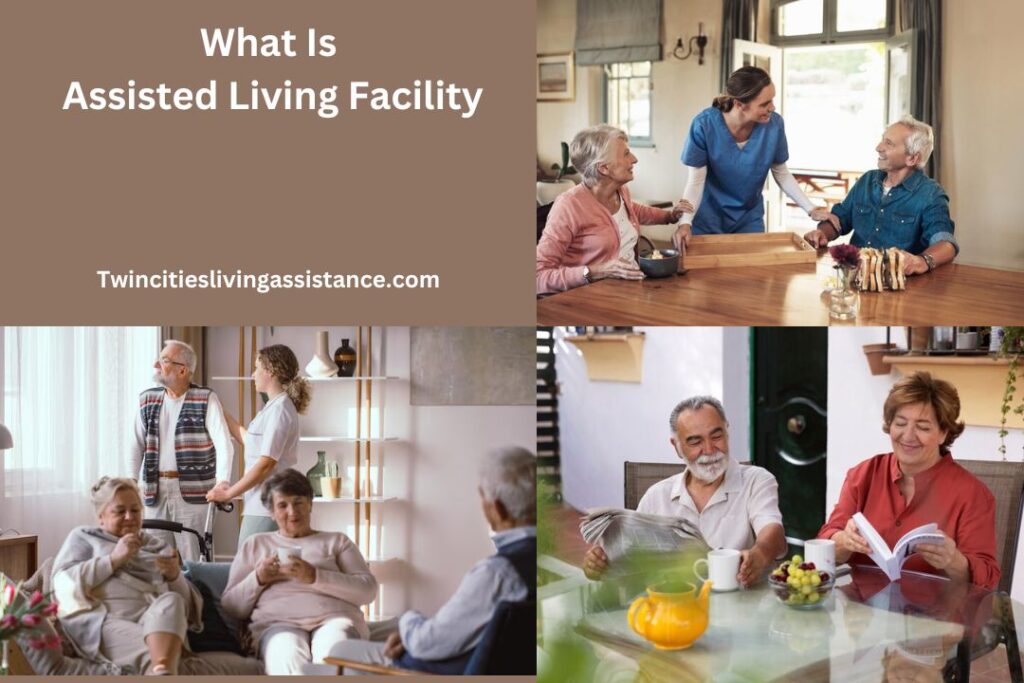
As seniors enter their golden years, they often face important decisions about their living arrangements. Many families struggle with the choice of whether an aging loved one should remain at home or move to a community designed to support their needs. A retirement home offers an ideal solution by providing a safe, social, and supportive environment where seniors can maintain their independence while receiving assistance when needed.
Retirement homes are not just places for seniors to reside—they are communities that promote an active, engaging, and stress-free lifestyle. From healthcare support to social activities, these communities offer a range of benefits that enhance the quality of life for older adults. This article explores the many advantages of living in a retirement home and why it can be a smart choice for seniors and their families.
What Is a Retirement Home?
A retirement home is a residential community designed specifically for seniors who are generally independent but may require some assistance with daily activities. Unlike assisted living facilities or nursing homes, which provide more intensive medical care, retirement homes offer a balance of independence and support. They provide seniors with private living spaces while offering meal preparation, housekeeping, and recreational activities.
Retirement homes are ideal for aging adults who no longer want the burden of home maintenance but still wish to enjoy an active and fulfilling lifestyle. They are designed to provide comfort, safety, and a sense of belonging while allowing seniors to live on their terms.
Safety and Security: A Stress-Free Environment
One of the primary concerns for seniors and their families is safety. Living alone can present numerous risks, including falls, burglaries, and medical emergencies. A retirement home provides a secure environment with safety features such as:
- 24/7 security personnel to monitor the premises and respond to emergencies.
- Emergency call systems in individual rooms and common areas.
- Well-lit hallways, handrails, and wheelchair-accessible spaces to reduce the risk of falls.
- Controlled access to prevent unauthorized visitors.
These security measures help seniors feel protected and provide peace of mind for their loved ones.
Access to Healthcare and Wellness Services
As people age, healthcare becomes an increasingly important aspect of daily life. One of the significant benefits of living in a retirement home is the accessibility of healthcare services. Many communities offer:
- Regular health check-ups and wellness programs.
- On-site nurses and medical professionals who can respond to health concerns.
- Medication management to ensure seniors take their prescriptions correctly.
- Physical therapy and rehabilitation services for those recovering from injuries or surgeries.
Having immediate access to healthcare reduces the need for frequent hospital visits and ensures that seniors receive prompt medical attention when needed.
Socialization and Community Engagement
Isolation and loneliness are common issues among seniors, especially those who live alone. A retirement home fosters a sense of community by offering numerous social opportunities, including:
- Group outings to local attractions, parks, and events.
- Hobby clubs such as gardening, painting, and music.
- Fitness classes, dance sessions, and recreational sports.
- Movie nights, game nights, and cultural celebrations.
These activities encourage seniors to build friendships, stay mentally stimulated, and enjoy a fulfilling social life. Studies show that staying socially active can significantly improve mental health and reduce the risk of depression among older adults.
Freedom from Home Maintenance and Chores
One of the most significant burdens of aging in place is the responsibility of home maintenance. Seniors often struggle with household tasks such as cleaning, cooking, and yard work. Retirement homes eliminate these concerns by providing the following:
- Housekeeping services that include cleaning, laundry, and linen changes.
- Maintenance staff to handle repairs and upkeep.
- Landscaping services to keep outdoor areas well-maintained.
- Meal preparation allows seniors to enjoy nutritious meals without the hassle of cooking.
By removing these responsibilities, seniors can focus on activities they enjoy and lead a more relaxed lifestyle.
Nutritious Meals and Dining Options
Maintaining a balanced diet is essential for healthy aging. However, many seniors struggle with meal preparation, leading to poor nutrition or skipped meals. Retirement homes offer:
- Chef-prepared meals with a focus on balanced nutrition.
- Specialized menus that accommodate dietary restrictions, such as low-sodium or diabetic-friendly meals.
- Communal dining options that allow residents to enjoy meals with peers.
- The convenience of on-site dining without the need for grocery shopping or cooking.
Proper nutrition enhances energy levels, supports immune function, and improves well-being.
Independence with Support When Needed
A common misconception about retirement homes is that they take away independence. These communities are designed to promote autonomy while offering support when necessary. Seniors can:
- Maintain private living spaces with the freedom to set their daily routines.
- Choose how much assistance they receive, whether minimal support or regular help.
- Continue pursuing personal interests and hobbies.
Retirement homes provide a sense of freedom while ensuring that help is available, offering a perfect balance for seniors who want to maintain control over their lives.
Opportunities for Lifelong Learning and Recreation
Retirement does not mean the end of learning and personal growth. Many retirement communities offer:
- Educational workshops and guest lectures on various topics.
- Technology classes to help seniors stay connected with family and friends.
- Creative courses such as art, writing, and music.
- Exercise programs include yoga, tai chi, and strength training.
Engaging in lifelong learning keeps the mind sharp and improves cognitive function, helping seniors stay mentally and physically active.
Cost-Effectiveness of Retirement Living
Many assume living at home is more affordable than moving to a retirement home. However, retirement living can be a more cost-effective option when considering expenses such as property taxes, home maintenance, and healthcare costs. The financial advantages include:
- All-inclusive pricing that covers rent, utilities, meals, and activities.
- No unexpected repair costs or home maintenance expenses.
- Savings on transportation and grocery bills.
Families should compare the costs of aging in place versus a retirement home to determine the best financial decision for their loved one’s future.
Peace of Mind for Families
Caring for an aging loved one can be stressful for family members, especially if they live far away or have demanding work schedules. A retirement home provides peace of mind by ensuring that seniors are in a safe, supportive, and engaging environment. Families can:
- Visit their loved ones without the stress of caregiving responsibilities.
- Stay informed about their well-being through regular communication with staff.
- Trust that their loved one is receiving professional care and attention.
This allows families to focus on spending quality time together rather than worrying about daily care needs.
Conclusion
Moving to a retirement home is not about giving up independence—it’s about enhancing the quality of life. These communities provide seniors with safety, social engagement, healthcare access, and freedom from home maintenance, allowing them to enjoy a fulfilling and stress-free lifestyle.
For families considering senior living options, exploring retirement homes can offer a practical and beneficial solution for their loved ones. With the right community, seniors can thrive, stay active, and enjoy their retirement years with comfort and dignity.


